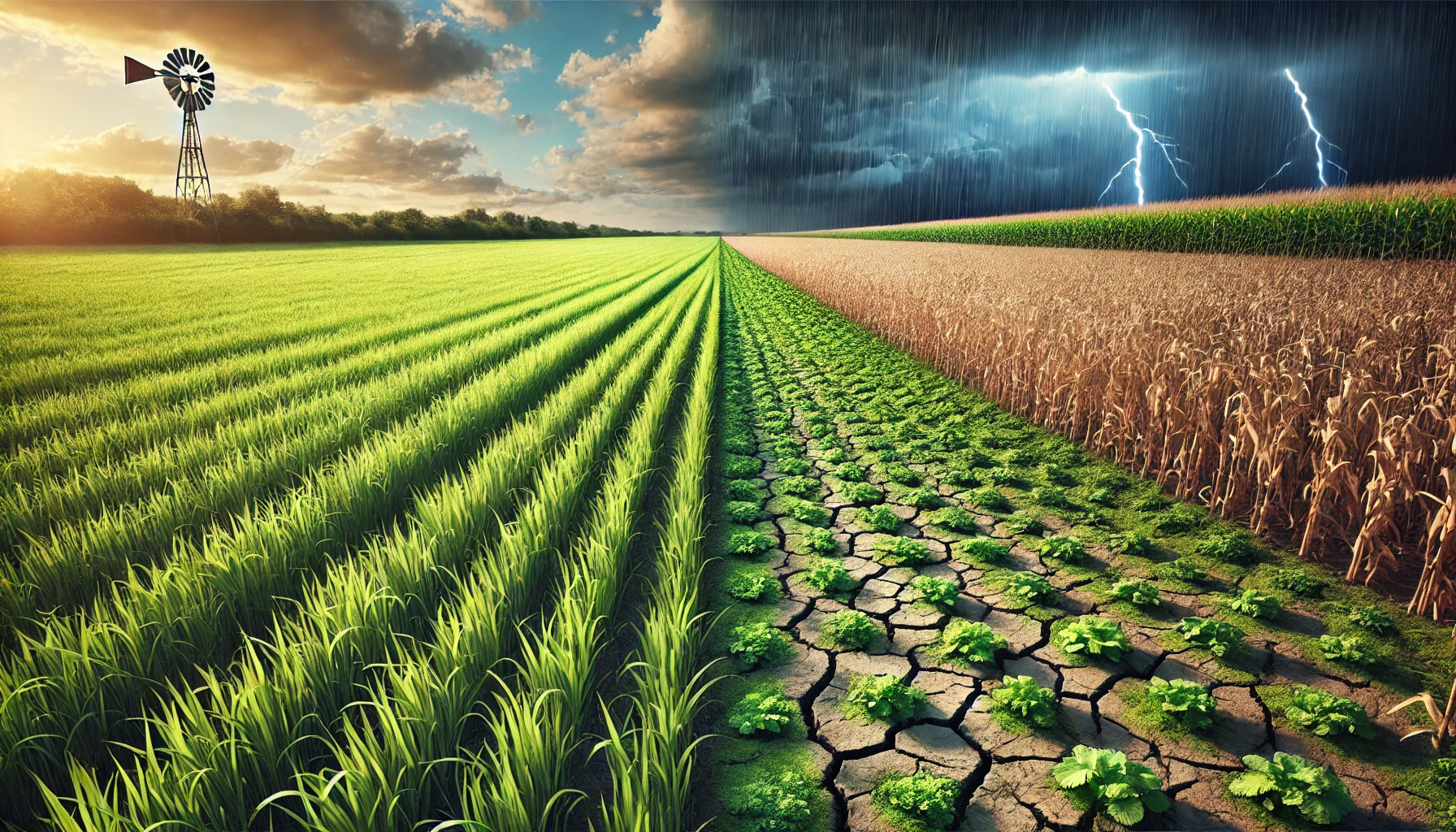The Alarming Impact of Climate Change on Global Crop Yields and Food Security
A study by the Asian Development Bank and Université Côte d’Azur reveals severe impacts of climate change on global crop yields, with wheat and maize facing significant losses due to extreme precipitation-evapotranspiration events. The research emphasizes urgent adaptive strategies to mitigate food security risks, particularly in vulnerable regions like South Asia and Southern Africa.

The Asian Development Bank, in partnership with the Université Côte d’Azur, delivers groundbreaking insights into the devastating effects of climate change on global agriculture through its study, “Empirically Estimated Impacts of Climate Change on Global Crop Production via Increasing Precipitation–Evapotranspiration Extremes.” Authored by David A. Raitzer and Joeffrey Drouard, the research employs advanced remote sensing and agrometeorological reanalysis data from 2003 to 2015 to analyze how climate extremes like drought and heavy rainfall impact the world’s most critical crops: rice, wheat, and maize. The study’s results paint a concerning picture, particularly for regions such as South Asia and Southern Africa, where food security is already a pressing issue.
Quantifying Vulnerabilities Through Rigorous Analysis
This research stands out for its meticulous methodology, which utilizes a high-resolution dataset at a 0.1-degree grid scale to assess the impacts of climatic factors. Using variables such as temperature, rainfall, cloud cover, and the Standardized Precipitation–Evapotranspiration Index (SPEI), the study applies a quadratic model to capture the nonlinear effects of extreme weather conditions on crop yields. The findings reveal an inverse U-shaped relationship, where yields peak under balanced conditions but plummet with deviations into drought or excessive rainfall. Wheat and maize are found to be particularly vulnerable, experiencing steep losses in warmer regions where increased evapotranspiration exacerbates climatic stress. Meanwhile, rice demonstrates relative resilience, especially in Southeast Asia, due to its ability to thrive in water-intensive conditions during monsoons.
Challenging Conventional Models and Assumptions
Contrary to earlier crop modeling studies that suggested limited yield impacts or even benefits from carbon dioxide fertilization, this research highlights significant vulnerabilities overlooked by previous models. Many of these models failed to incorporate the frequency and intensity of extreme events, which are becoming increasingly common due to global warming. By integrating observational data with projections from global circulation models under a high-end emissions scenario, the study underscores that yield reductions for crops like maize could exceed 50% in certain regions by the century's end. These findings are particularly alarming for tropical and subtropical areas, where the dual challenges of climate vulnerability and food insecurity converge.
A Closer Look at Regional Impacts and Crop Resilience
The study offers detailed insights into how different regions and crops are affected by climate extremes. In South Asia, for example, wheat and maize yields are projected to suffer significantly due to heightened drought and heat stress, while Southeast Asia’s rice yields may remain relatively stable. This resilience is attributed to rice's unique cultivation practices, such as puddled fields and monsoonal irrigation. However, even rice is not immune to the cascading effects of intensifying weather patterns, which could disrupt planting cycles and water availability in the long term. The implications extend beyond agriculture, threatening livelihoods, economies, and social stability in the world’s most vulnerable regions.
Shaping Future Policy and Adaptation Strategies
The research carries profound implications for policymakers, urging immediate action to address these looming challenges. Developing climate-resilient crop varieties, investing in advanced irrigation systems, and improving water management strategies are identified as critical measures. The study also emphasizes the importance of robust agricultural research and innovation to help regions adapt to changing climatic realities. Without decisive action, the ripple effects of declining yields could exacerbate poverty, hunger, and instability, particularly in areas already struggling with these issues. Policymakers are called to prioritize sustainability and resilience in agricultural systems to safeguard food security for future generations.
A Sobering Roadmap for a Warming World
The collaborative work of the Asian Development Bank and Université Côte d’Azur delivers a sobering assessment of the future of global agriculture under the pressures of climate change. Its findings challenge prevailing assumptions, revealing that the effects of extreme precipitation-evapotranspiration events are likely to overshadow any potential benefits of CO2 fertilization. By using empirical coefficients and high-resolution data, the study projects alarming yield losses for critical crops like wheat and maize, with tropical and subtropical regions bearing the brunt of the impacts. The research emphasizes the urgency of developing adaptive strategies to mitigate these challenges, offering a clear roadmap for policymakers, farmers, and stakeholders to prioritize sustainability in food systems. In a world increasingly defined by climatic unpredictability, this study provides critical guidance for safeguarding global food security against the intensifying threats of climate change.
- FIRST PUBLISHED IN:
- Devdiscourse










